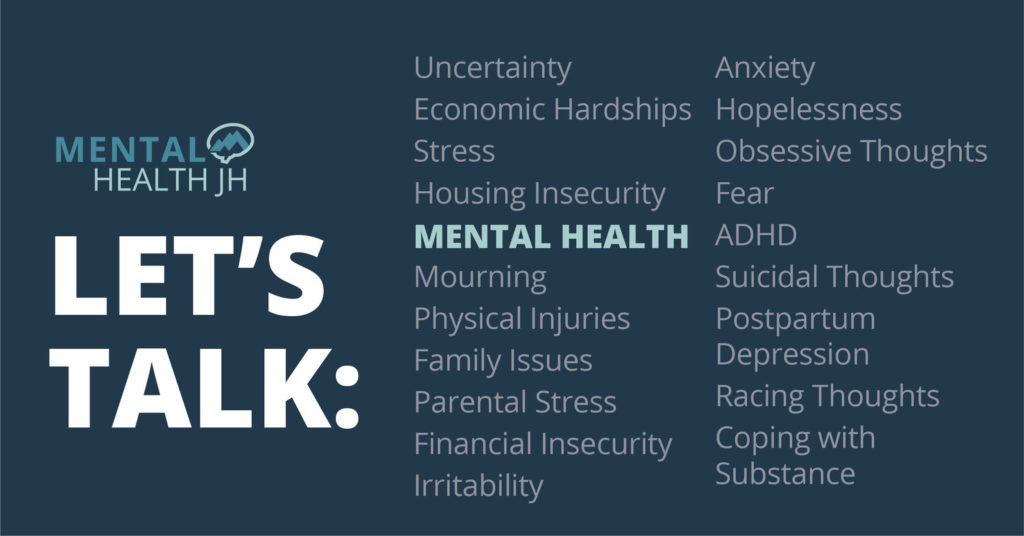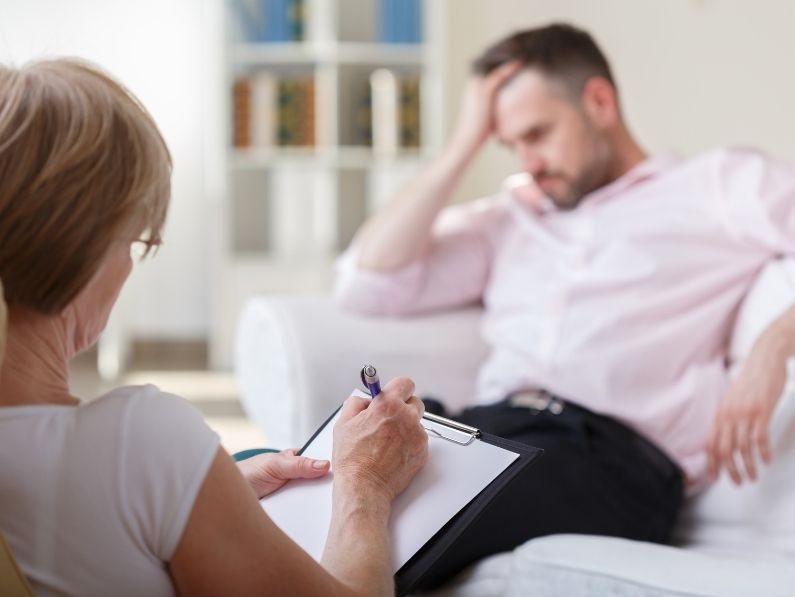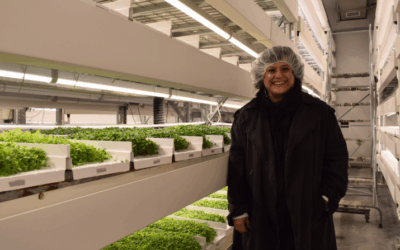The COVID-19 pandemic has intensified the need for mental health care services across the country. According to the nonprofit Kaiser Family Foundation, over 37 percent of Americans reported symptoms of anxiety or depression during October 2020. That number is slightly lower in Wyoming, but the state is worse off compared to the rest of the country in other areas.
It has the highest suicide mortality rate in the nation, per CDC statistics, at 25.2 deaths per 100,000 people. If that number were a COVID infection rate, Wyoming would be at the red risk level. Lindsay Long, Behavioral Health Manager at St. John’s Health, said Teton County’s position as a mountain town makes its residents more likely to suffer from issues with their mental health.
“There’s a perception of this place kind of as, you know, we have it all together,” Long said. “But in reality, I think there’s a lot of people hurting underneath.”
Long is also the resource coordinator for the Mental Health JH initiative. Almost 18 percent of Wyomingites who had an episode of anxiety or depression in October faced an unmet need for mental health services. Mental Health JH, piloted this year, tries to bridge that gap. It provides those that apply for counseling with six free visits with a participating therapist. And so far, it’s been successful.
“We haven’t turned down one person,” Long said. “Through the Mental Health JH program, therapists have been great at getting people in within the week or two.”

As of December 2020, just 21 percent of Mental Health JH applicants were male. The “Let’s Talk” campaign attempts to raise that percentage. (Screenshot)
As of December, over 225 people applied for Mental Health JH services. Last month, it was announced that the program will be continuing through June 2021. Long said the program has helped reduce stigmas surrounding mental health, as well as other barriers.
“We’ve seen a lot of people within that program who have never received services, nor would they have sought services, because of the cost of mental health counseling,” Long said. “And who are actually engaging in this process.”
Per December’s Mental Health JH data, 45 percent of applicants were seeking therapy due to anxiety—by far the number one reason.
“People are under stress,” Long said. “I talked to a provider recently who said people are in tears pretty much daily in his office. He had one patient curled up in a ball because he was worried about his business. So there’s a lot of real emotions that are surfacing right now.”
Long said she added one mental health professional to the behavioral health team to account for community demand and ensure that applicants are seeing someone within a couple of weeks. Just 21 percent of all applicants were men, a number Long is hoping rises through targeted advocacy campaigns. The number one industry represented in applicants was education, while the number one age range was adults aged 30-39.
Another provider that has seen an uptick in use during this pandemic is Teton Youth and Family Services. Sarah Cavallaro is Executive Director there, and says she’s seen stressed-out parents and children first-hand.
“At our Hirshfield Center, which works with different families, I think we’ve seen much greater levels of kids experiencing that anxiety and depression,” she said. “Parents are feeling more stressed out, and are needing more assistance and guidance.”
Cavallaro, like others across Teton County, has had to fundraise a lot this year to keep up her services during this challenging time. She said that some of her funding is in jeopardy right now. State legislators have $300 million to potentially cut in 2021, and a lot of that could come out of mental health care services that currently receive funding from Cheyenne, such as Youth and Family Services.
“Our crisis services could be at risk. The mental health center’s ability to provide stabilization could be at risk,” Cavallaro said. “Like, these things are really basic to our community. And I think it’s really, really important that people know that services are happening and we’re going to continue doing them until we have no money left. But that is a very real thing.”
Cavallaro said programs like Mental Health JH let people know that local community members are struggling, and that it’s OK to struggle. But it also alerts people to the fact that crucial cuts could be coming without local support and lobbying at the state level. And in a time with so much stress and anxiety, that could have dire consequences for locals that need services badly right now.
“I think of it as like an elastic band, and it’s like stretched to the limit right now,” Cavallaro said. “And I worry that adding one more little stretch is just going to make people snap.”
County officials are now urging people to utilize the services at their disposal, such as Mental Health JH. Those that used all their counseling sessions in 2020 now have them renewed for free in 2021. Those interested in applying, or learning more about the program, can visit mentalhealthjh.com.






